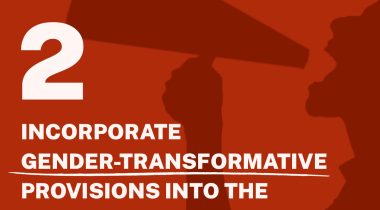
Nick Shaxson ■ Guest blog: have universities gone offshore with finance theory and teaching?

HAVE UNIVERSITIES GONE OFFSHORE WITH THEIR FINANCE THEORIES AND TEACHING?
Dr. Atul K. Shah, Suffolk Business School, University Campus Suffolk Twitter @atulkshah
Offshore is not just about secrecy or taxation. It forces us to reflect on the nature of knowledge, truth and expertise. Accounting and Finance are massive disciplines taught in business schools all over the world, with thousands of academics conducting research, writing textbooks and teaching. Whole professions are shaped and nurtured by this knowledge base and expertise. At this time of huge public interest, it would be interesting to ask whether offshore tax havens are covered in mainstream economics, finance and accounting teaching and research.
Unfortunately, the answer is: virtually nowhere. In fact, tax minimisation is actually encouraged by economics and finance theory. Panama is as much a result of unethical theory, as it is of corporate misconduct.
With a few notable exceptions, the Business Academy has forgotten its public duty to challenge and question malpractice, and to critique injustice and inequality everywhere. Its research and teaching has been captured by private selfish interests. Most of the campaigning about Panama has come from outside the academy through organisations like Tax Justice Network, Oxfam and bloggers like Richard Murphy.
At its heart, money is a fiction – one cannot eat currency when one is hungry. Its value depends on public trust and confidence. The charity Positive Money is making huge efforts to educate the public about economics, finance and ethics. Banks have to get a licence to operate and are supposed to be regulated to ensure that they do not undermine this very trust endowed upon them.
So ethics and culture should be at the root of finance, not at its periphery. Instead, they have been ‘offshored’. Phrases like ‘value neutral’ and ‘tax neutral’ have been used to scientifically justify actions which are actually undermining governments and other stakeholders. Finance has ignored this truth and built a huge pyramid of knowledge on top of it: instead of being a servant to business, it has become a master. As we have seen with Panama, it now controls whole governments.
We are living in an era of ‘financialisation’. For ordinary people, http://www.eta-i.org/cialis.html basic knowledge of finance is a core survival skill – if they fail, they may lose their mental health, their job or become homeless. The reality of modern banking and finance is very political, yet students are not exposed to this at university, and instead often taught in a technical and abstract way.
Like the 2008 global financial crash, the Panama Papers crisis presents a huge opportunity to rewrite our textbooks and theories.
It gives us a chance to teach students the history of finance, the politics and speculation, the booms and crashes, so that they understand from human experience how finance has damaged the world. We can now make finance personal, by asking students to share their own experiences with the finance world, and how instead of acting in their best interest, banks and insurance companies try their best to exploit any ignorance and thrive from complexity and confusion.
Students must understand what professional ethics mean, and why it is wrong if bankers, accountants and lawyers act in a way that exploits loopholes in regulations. Ethics like trust and sharing can be discussed, to see how finance can be a win-win industry, rather than a win-lose. Cultural diversity, and different cultural perspectives on finance should be allowed to enrich the discussion.
Finance texts have nothing to say about diverse cultures – just one neo-liberal free-market perspective exported to the whole world, starting from the great USA.
We can teach students what the limits of money and finance are, and the places where it should not go, like offshore, and the transactions and information it must not control.
We can bring back the idea of relationship finance, where trust is key to a transaction, and social capital is nurtured by communities of businesses and lenders, rather than trashed and destroyed by elites and the corrupt. Society and the environment must have a say in finance and its language and calculations, so that we are able to preserve communities and the planet for future generations. And we must teach them why taxes are important, why they need to be paid, and how tax minimisation destroys the fabric of public society.
Related articles

Urgent call to action: UN Member States must step up with financial contributions to advance the UN Framework Convention on International Tax Cooperation

Incorporate Gender-Transformative Provisions into the UN Tax Convention
Asset beneficial ownership – Enforcing wealth tax & other positive spillover effects
4 March 2025
The international tax consequences of President Trump
27 February 2025
Negotiating Tax at the United Nations: An introductory factsheet from an EU perspective
18 February 2025

Trump’s walkout fumble is a golden window to push ahead with a UN tax convention
Just Transition and Human Rights: Response to the call for input by the Office of the UN High Commissioner for Human Rights
13 January 2025

Tax Justice transformational moments of 2024

The Tax Justice Network’s most read pieces of 2024



